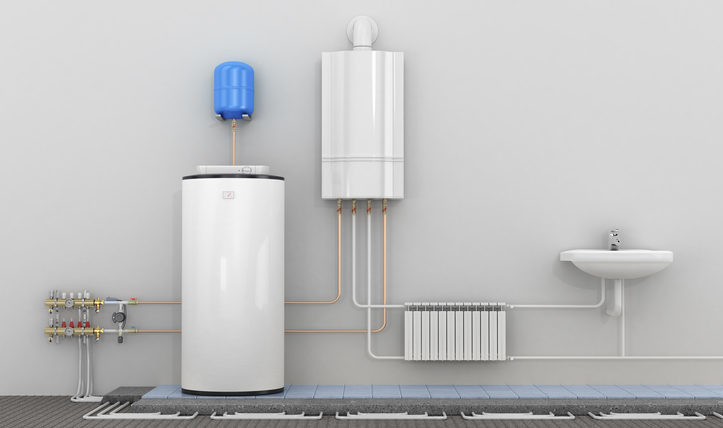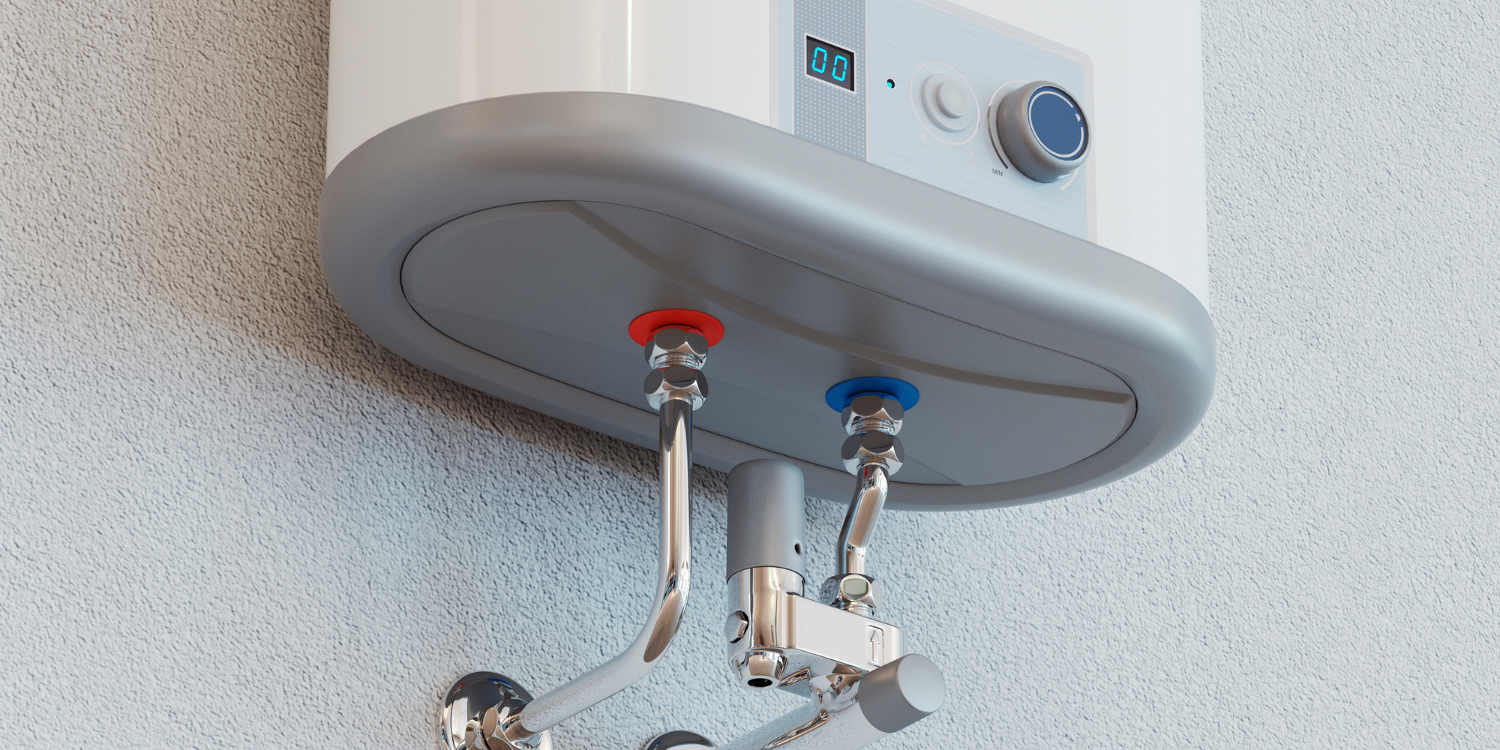Right here below you can locate a bunch of good points about 5 Benefits of Tankless Water Heaters.

In a globe where comfort and effectiveness reign supreme, it's no surprise that home owners are frequently looking for smarter ways to manage their home's power intake and comfort. One technology that has progressively gotten popularity is the tankless water heater. But what exactly makes these systems stand apart from the conventional tank-based designs most of us matured with? Allow's dive in and discover the benefits of tankless water heaters, assisting you choose if it's time to make the switch in your home.
Introduction
Image this: you step into the shower after a lengthy day, expecting a relaxing waterfall of warm water, only to be welcomed by icy droplets because the last person used it all up. Noise familiar? Standard hot water heater store a fixed amount of hot water, meaning you go to the mercy of that container's supply. Tankless systems, on the other hand, heat water as needed. No more going out mid-shower, say goodbye to wrestling with routines simply to make certain hot water is available.
Comprehending Tankless Water Heaters
What Are Tankless Hot Water Heater?
Tankless water heaters, often called on-demand or instantaneous water heaters, give hot water just as it's needed. Instead of keeping gallons of pre-heated water, these units kick right into activity the moment you turn on the faucet. Water travels through a warmth exchanger, heating up in real-time, implying you obtain an undisturbed flow of warm water without the requirement for a huge tank sitting lazily by.
How Do They Differ from Standard Equipments?
Traditional heating units hold a storage tank of warm water, using energy to maintain that storage tank at a consistent temperature. Tankless units remove the standing supply, lowering wasted power and the cumbersome impact of a huge cylinder. Essentially, you're upgrading from a "stockpile" way of thinking to a "made-to-order" approach.
Typical Kinds Of Tankless Units
Tankless hot water heater generally can be found in 2 selections: gas and electrical. Gas versions often tend to deliver greater circulation rates, suitable for bigger families, while electric designs usually serve smaller homes and are usually much easier to set up. Furthermore, some systems are created for point-of-use (serving one fixture) while others can take care of the whole home's hot water needs.
Key Advantages of Tankless Water Heaters
1. Limitless Hot Water Supply
Ever before needed to schedule showers so every person obtains their reasonable share of warm water? With tankless, that ends up being a distant memory. As long as the heating unit's circulation capacity isn't exceeded, you can take back-to-back showers without becoming a popsicle.
2. Energy Efficiency and Price Financial Savings
Say goodbye to heating a titan container's well worth of water and maintaining it warm all day. Tankless heaters decrease standby energy losses, which can lower utility bills. While the preliminary cost might be greater, the lasting financial savings frequently warrant the financial investment.
3. Space-Saving Style
If your home is short on storage space, removing the cumbersome tank maximizes important space. Tankless units are small and can typically be installed on walls, hidden in corners, or set up in tight utility storage rooms without grabbing all of the entire room.
4. Longer Life expectancy
A properly maintained tankless water heater can outlive its tank-based relative. Standard tanks could last 10-15 years, while tankless models can maintain chugging along for twenty years or even more, making them a strong financial investment with time.
5. Improved Water High Quality
Storing water in a storage tank can often bring about sediment buildup or a slightly "off" taste. With tankless systems, fresh water is warmed on the spot, minimizing the chances of debris build-up and possibly offering cleaner-tasting water.
Factors to consider Prior To Changing
Though the advantages are compelling, it's important to take into consideration a couple of factors prior to fully dedicating.
Preliminary Investment Expenses
Tankless heaters generally come with a higher ahead of time price. In between the unit itself and possible installment alterations, the preliminary price might provide you sticker label shock. However remember to view it as a lasting investment.
Setup Requirements
Depending on your home's infrastructure, you may require extra electrical ability or gas line upgrades. Ensure you comprehend the installment requirements and seek advice from an expert to avoid surprises.
Reviewing Your Home's Water Use Patterns
If your house at the same time makes use of multiple fixtures with high warm water need, make certain the system's flow price satisfies your requirements. Knowing your use patterns helps you choose the best dimension and sort of tankless heating system.
Maintenance and Care Tips
Tankless systems are fairly low upkeep, yet they aren't set-it-and-forget-it appliances.
Normal Cleansing and Descaling
Hard water minerals can accumulate in the warm exchanger, influencing efficiency. Regular descaling (frequently suggested each year) keeps the device going for peak performance.
Yearly Expert Evaluations
A yearly checkup from a professional makes sure small concerns are captured early. They'll examine the unit's performance, seek leaks, and help maintain optimal performance.
Making Sure Appropriate Ventilation
For gas models, correct air flow is necessary to securely eliminate exhaust gases. Ensure airing vent systems are tidy and appropriately installed to prevent any possible safety and security dangers.
Contrasting Different Brands and Models
Not all tankless water heaters are created equal.
Researching Trusted Suppliers
Try to find reliable brand names with a history of producing quality units. A trusted manufacturer often offers much better client assistance and longer service warranties.
Checking Out Reviews and Customer Comments
Customer reviews and comments from next-door neighbors or good friends that have actually gone tankless can provide valuable understandings. Often, real-life experiences can be much more telling than advertising brochures.
Setup: Do It Yourself or Expert?
While some home owners delight in taking on tasks themselves, tankless installation could not be the very best time to burst out the toolbox.
Advantages and disadvantages of DIY Installation
A do it yourself set up could conserve money, however it features risks. Inaccurate installment can cause inefficiency or safety and security concerns. If you're handy and have experience, it might be feasible-- yet proceed with care.
When to Call a Professional Plumber
For the majority of, calling a professional makes sure whatever's done correctly. A professional plumbing technician comprehends neighborhood codes, sizing requirements, and venting parameters, minimizing the danger of incidents.
Taking full advantage of Performance
You've invested in a tankless device-- now optimize its efficiency.
Optimal Temperature Level Setups
The majority of people establish their systems between 120-140 F. Readjusting the temperature level can improve convenience and cost savings. Experiment to locate a sweet spot that does not lose energy.
Pairing with Low-Flow Fixtures
Want to stretch your unit's abilities? Take into consideration mounting low-flow showerheads and faucets. They lower water usage, allowing your tankless system to provide a consistent stream of hot water without stressing.
Environmental Impact
Tankless water heaters line up with greener living objectives.
Decreased Carbon Impact
By utilizing less power and just heating water as needed, tankless systems can reduce your home's carbon footprint, minimizing your ecological influence.
Conserving Natural Resources
Much less power usage and less wasted warm water translate into less natural deposits being utilized, an environmental win-win.
That Profits The Majority Of from Tankless Heating systems?
The charm of tankless heating systems is that they can suit a selection of houses.
Huge Families vs. Single Passengers
Large families might enjoy the limitless warm water supply, while solitary owners appreciate the power financial savings from not warming a whole tank for just one person's morning shower.
Homeowners with Restricted Space
If your home is short on square footage, losing the bulky container frees up area for other basics-- or maybe just a lot more breathing space.
Eco-Conscious Consumers
Going tankless aligns with eco-friendly values, guaranteeing you're not losing power or sources.
Future Fads in Tankless Water Heaters
The globe of home devices is ever-evolving, and tankless water heaters are no exception.
Smart Home Assimilation
Visualize changing your water heater's temperature through an app or getting upkeep signals on your phone. As wise home tech breakthroughs, we'll see even more connection and ease.
Improvements in Technology
R&D is continuously improving warmth exchangers, making systems extra efficient and sturdy. Future models might be also quieter, a lot more small, and far better fit for varying environments.
Verdict
Picking a tankless water heater is more than simply upgrading your home's hot water system; it's investing in long-term convenience, energy effectiveness, and a greener lifestyle. By considering your household's water usage, being mindful of installation needs, and dedicating to regular maintenance, you can enjoy a steady stream of warm water without the baggage of a large tank. As technology advances, you can eagerly anticipate even smarter, a lot more efficient tankless remedies that not just make your life easier however likewise profit the planet.
Why You Should Consider a Tankless Water Heater for Your Home
Energy Efficiency and Cost Savings
Tankless water heaters, also known as on-demand water heaters, heat water only when needed. This means they don't waste energy keeping a tank of water hot constantly. This efficiency translates into substantial cost savings on your monthly energy bills.
Endless Hot Water Supply
One of the significant advantages of tankless water heaters is their ability to provide a continuous supply of hot water. Traditional tank water heaters have a limited capacity and can run out of hot water, especially during peak usage times. In contrast, tankless water heaters can provide an endless stream of hot water, making them ideal for larger families or homes with high water usage.
Space-Saving Design
Tankless water heaters are compact and take up significantly less space compared to traditional tank heaters. They can be installed on walls, under cabinets, or even outside, freeing up valuable space in your home. This makes tankless water heaters a great option for smaller homes or properties with limited space for a traditional water heater.
Longer Lifespan and Lower Maintenance
Tankless water heaters typically have a longer lifespan compared to traditional tank heaters. They can last up to 20 years or more with proper maintenance. Additionally, tankless systems are designed with replaceable parts, which can extend their lifespan further and reduce long-term maintenance costs.
Environmentally Friendly
Reducing energy consumption not only saves you money but also benefits the environment. Tankless water heaters contribute to a smaller carbon footprint by using less energy to heat water. Their energy efficiency and ability to minimize standby heat loss make them an eco-friendly choice for environmentally conscious homeowners.
Customized Temperature Control
Tankless water heaters offer precise temperature control, allowing you to set the desired temperature to meet your specific needs. This level of customization ensures you always have water at the perfect temperature for your comfort and usage requirements.
https://beantownservices.com/blog/consider-tankless-water-heater-for-your-home

Hopefully you liked our topic about Unveiling the Hot Trend: The Benefits of Tankless Water. Many thanks for finding the time to browse our blog. Sharing is nice. Helping others is fun. We thank you for reading our article about .
Schedule A Free Estimate